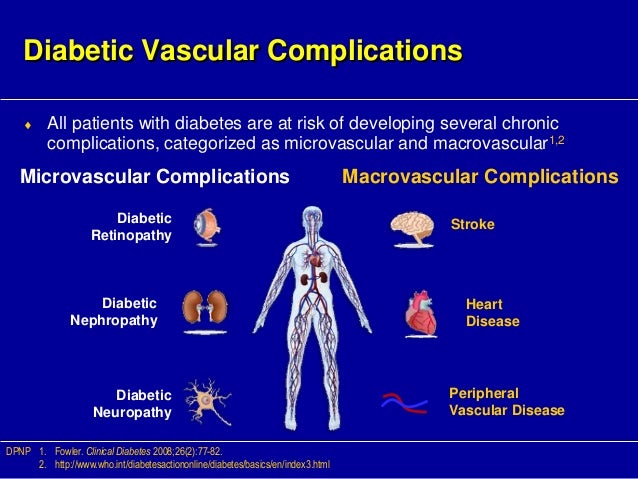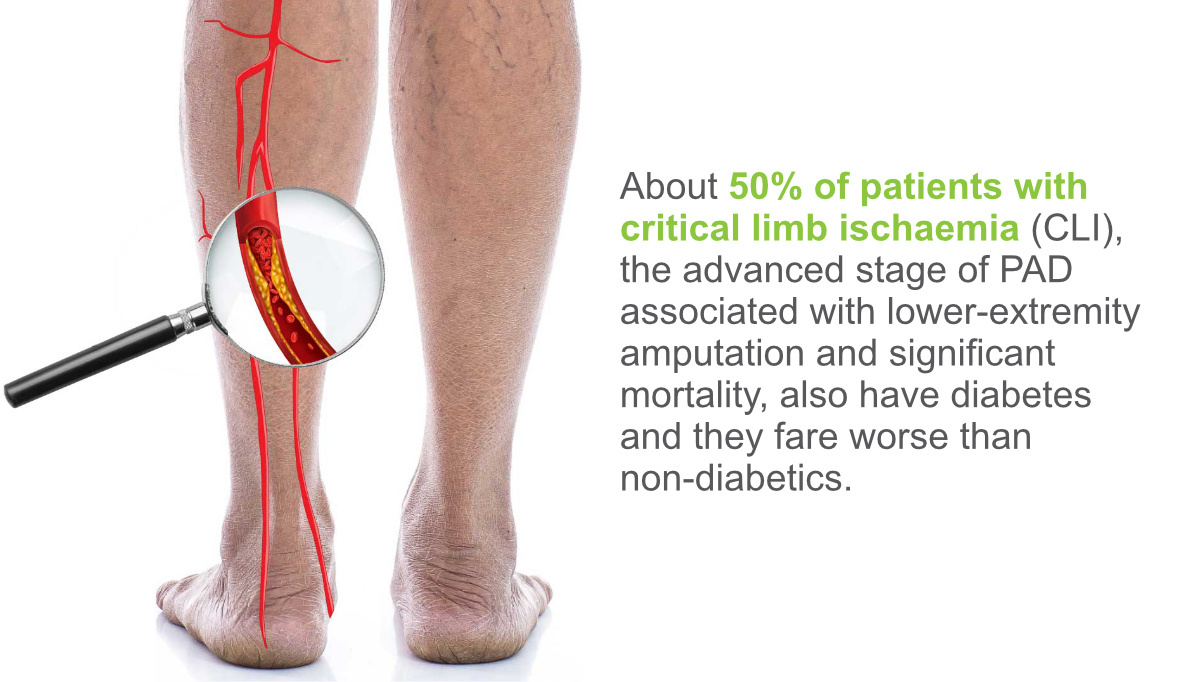Diabetes Vascular Damage
Understanding Your Risk Of Heart Disease With Type 1 Diabetes
Diabetes is considered a risk factor for vascular dementia. this type of dementia occurs due to brain damage that is often caused by reduced or blocked blood flow to your brain. many people with diabetes have brain changes that are hallmarks of both alzheimer's disease and vascular dementia. Diabetes can impact the blood vessels that serve the kidneys. this can lead to kidney vailure, dialysis and/or a kidney transplant heart attack and stroke. both can be caused by vascular damage, which is increased by diabetes.
Diabetes can impact the blood vessels that serve the diabetes vascular damage kidneys. this can lead to kidney vailure, dialysis and/or a kidney transplant; heart attack and stroke. both can be caused by vascular damage, which is increased by diabetes. learn more about how vascular disease can cause stroke. related illnesses of concern to patients with diabetes:. More diabetes vascular damage images. Basina says the exact cause of how type 1 diabetes affects the cardiovascular system isn’t known. high blood pressure, high cholesterol, and diabetic kidney disease can all play a role, if present.
Vascular Complications Of Diabetes Mechanisms Of Injury

How High Blood Sugars Damage Blood Vessels

The vascular system is made up of arteries and veins that carry oxygenated blood around the body and oxygen depleted blood to the lungs to remove carbon dioxide from the blood and replenish the oxygen. people with diabetes commonly experience problems with their vascular system and charity diabetes uk notes that diabetes is associated with Diabetes and vascular disease. diabetics have a high incidence of stroke. diabetes is a disease in which the body does not produce or properly use insulin. insulin is a hormone that is needed to convert sugar, starches, and other food into energy needed for daily life. there are several types of diabetes:. Some symptoms of diabetes-related vascular problems include: blurred vision floating spots in your vision unexpected weight gain or swelling in your face or limbs foamy looking urine sores on your feet loss of feeling in your hands or feet burning feeling in your hands or feet pain in your legs when.
What is diabetes? vascular disease & type 1 & type 2.
How Diabetes Affects Your Brain Webmd
About this journal. diabetes & vascular disease research is the first international peer-reviewed journal to unite diabetes and vascular disease in a single title. it mirrors the increasing recognition that diabetes and cardiovascular disease are a single entity in which diabetes and related disorders, such as insulin resistance, are directly linked with assaults on the vessel wall and the. Peripheral vascular disease. diabetes also affects the flow of signs of diabetic foot problems. if you have diabetes, contact your doctor if you have any of these problems:. See more videos for diabetes vascular damage. The pathophysiology of vascular disease in diabetes involves abnormalities in endothelial, vascular smooth muscle cell, and platelet function. the metabolic abnormalities that characterize diabetes, such as hyperglycemia, increased free fatty acids, and insulin resistance, each provoke molecular mechanisms that contribute to vascular dysfunction.
Six Diabetesrelated Vascular Complications And How To
In conjunction with national diabetes awareness month in november, here is how six vascular complications are aggravated by diabetes: diabetic eye disease. diabetes' effect on the vascular system is what causes diabetic eye disease. the tiny blood vessels in the retina become swollen, which blocks the oxygen supply to the retina. Macrovascular complications of diabetes the central pathological mechanism in macrovascular disease is the process of atherosclerosis, which leads to narrowing of arterial walls throughout the body. atherosclerosis is thought to result from chronic inflammation and injury to the arterial wall in the peripheral or coronary vascular system. People with diabetes face special health challenges, including an increased risk for cardiovascular conditions such as diabetic arterial or diabetic vascular disease. at the upmc heart and vascular institute our vascular surgeons are experts in treating diabetic arterial disease and its complications.
Vascular dementia is a general term describing problems with reasoning, planning, judgment, memory and other thought processes caused by brain damage from impaired blood flow to your brain. you can develop vascular dementia after a stroke blocks an artery in your brain, but strokes don't always cause vascular dementia. Diabetes' effect on the vascular system is what causes diabetic eye disease. the tiny blood vessels in the retina become swollen, which blocks the oxygen supply to the retina. if the condition becomes severe, it can cause blindness. what to do: be alert for changes in vision.
One of the more common long-term complications of diabetes is kidney damage. also known as diabetic nephropathy or diabetic kidney disease (dkd), this condition is a result of vascular abnormalities that accompany diabetes and increases mortality risk. furthermore, diabetes mellitus is a main risk factor for end-stage renal disease (esrd), the. The researchers suspect that increased modification of proteins by a glucose-derived molecule is a player in vascular problems associated with hypertension, stroke and obesity as well. tostes stated that, “we know diabetes is a major risk factor for cardiovascular disease and we think this is one of the reasons. ”. The following statistics speak loud and clear that there is a strong correlation between cardiovascular disease (cvd) and diabetes. at least 68 percent of people age 65 or older with diabetes die from some form of heart disease; and 16% die of stroke. Introduction. the vascular complications of diabetes are the most serious manifestations of the disease. atherosclerosis is the main reason for impaired life expectancy in patients with diabetes whereas diabetic nephropathy and retinopathy are the largest contributors to end-stage renal disease and blindness, respectively.
Diabetes increases your risk of having a stroke. it may also increase your risk of conditions such as alzheimer's disease and parkinson's disease. a look at the possible connection between. Diabetes is a group of chronic diseases characterized by hyperglycemia. modern medical care uses a vast array of lifestyle and pharmaceutical interventions aimed at preventing and controlling hyperglycemia. in addition to ensuring the adequate delivery of glucose to the tissues of the body, treatment of diabetes attempts to decrease the likelihood that the tissues of the body are harmed by. “with diabetes, you have an increased risk of damage to blood vessels over time, including damage to the small blood vessels in the brain. this damage affects the brain’s white matter,” says joseph. Your risk of developing complications diabetes vascular damage is also reduced if you deal with any other 'risk factors' that you may have such as: high blood pressure smoking being overweight high cholesterol levels an unhealthy diet lack of exercise stress.
How high blood sugars damage blood vessels.
The second most common form of dementia is vascular. the link between diabetes and vascular dementia is fairly straightforward and involves damage to the blood vessels that deliver nutrients to the brain ("vascular dementia," right). the connection to alzheimer's is less clear. as the u. s. diabetes vascular damage population ages, alzheimer's disease is a growing problem. People who have diabetes are more at risk of getting vascular disease because their blood sugar levels have spent prolonged periods of time being poorly controlled and higher than normal. in turn, this affects the lining of the body's arterial walls, making the inside of the blood vessels more likely to fur-up causing them to narrow (atherosclerosis). This condition increases the risk of developing coronary, cerebrovascular, and peripheral arterial disease up to 4-fold. 2 disease severity, as measured by chronic glycemia, is associated with an increasing frequency of clinical events in each vascular bed. 3 the effect of diabetes on atherosclerosis is so pronounced that the benefit of female. The vascular complications of diabetes are the most serious manifestations of the disease. atherosclerosis is the main reason for impaired life expectancy in patients with diabetes whereas diabetic nephropathy and retinopathy are the largest contributors to end-stage renal disease and blindness, respectively.
Comments
Post a Comment